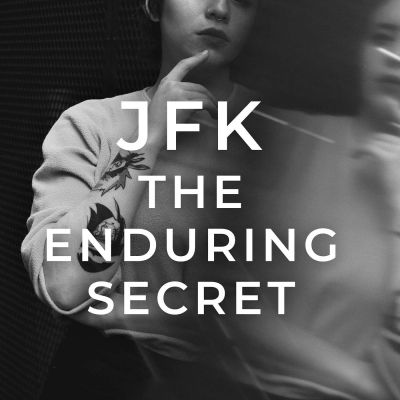An in depth tutorial and discussion around the assassination of John F. Kennedy, (JFK) the country's 35th president who was brutally murdered in Dallas Texas on November 22, 1963. The series comprehensively explores the major facts, themes, and events leading up to the assassination in Dealey Plaza and the equally gripping stories surrounding the subsequent investigation. We review key elements of the Warren Commission Report , and the role of the CIA and FBI. We explore the possible involvement of the Mafia in the murder and the review of that topic by the government's House Select Committee on Assassinations in the 1970's. We explore the Jim Garrison investigation and the work of other key figures such as Mark Lane and others. Learn more about Lee Harvey Oswald the suspected killer and Jack Ruby the distraught Dallas night club owner with underworld ties and the man that killed Oswald as a national TV audience was watching. Stay with us as we take you through the facts and theories in bite sized discussions that are designed to educate, and inform as well as entertain the audience. This real life story is more fascinating than fiction...
http://www.PodcastJFK.com
episode 174: Episode 174 The Alleged Attempted Bribery of Al Beauboeuf
Episode 174 is the story of the alleged attempted bribe of Al Beauboeuf by the Garrison investigators. Beauboeuf was a close friend of David Ferrie who lived at Ferrie's apartment for a time and also accompanied Ferrie on the night of the assassination on the famous trip to the Wonderland Skating Rink in Houston. Garrison was convinced that Ferrie was not telling them the truth, and that he was part of the assassination plot. Garrison's team also believed that Beauboeuf's relationship with Ferrie was highly likely to have made him privy to critical facts about the conspiracy plot. So their interest in getting Beauboeuf to reveal the truth was quite high in the days following Ferrie's death. They would offer Beauboeuf $3,000 and the prospect of a job with an airline in exchange for his testimony only to have the offer secretly taped by Beauboeuf's defense attorney. The tape was circulated to various law enforcement authorities and Beauboeuf's attorney attempted to sell the tape to the media outlets, but had no success in do so. Of course, the tactics deployed by Garrison's team beg the core question of whether they committed a crime that was not prosecuted when they offered Beauboeuf money and the prospects of a job in exchange for his testimony should it "fill in the holes". It also begged the question of whether Beaubouf and his attorneys injected their own dirty tricks into this process in order to entangle Garrison and his team. Of course, if the allegations against Garrison's team were true and it was a bribe, then in a bigger sense, the logical question to follow was whether or not these investigative tactics or approach were used on more than one witness. Used in attempts to obtain the desired testimony that was necessary to convict Clay Shaw. Testimony that may have been falsely teased out if the allegations were true, and testimony that would have shown a pattern of misconduct by Garrison's investigator's when combined with what was alleged to have occurred with other highly publicized witnesses such as Perry Russo. The New Orleans Police Department examined the tape and performed an investigation, and concluded that a bribe had not been offered under the then existing code of conduct.
Times were different than…it wasn’t a crime to offer financial or other assistance to witnesses….the legal issue is where the line gets drawn….drawn in the times in which it occurred…and whether they crossed over that line…as investigators…will be up to you once you listen to more details. We remind the audience that whether we believe it was right or wrong ( based on today's rules and today's environment) to offer financial assistance to a witness is a completely different question… is to ask a completely different question and one that was somewhat irrelevant to a juror in 1967 given the laws in operation at that time. So we have to be careful about avoiding the tendency to use the wrong historical yardstick when evaluating what Garrison and his team were doing at the time to get at the truth and bring justice...even though such tactics have long been outlawed in today's environment.
Aside from the legal aspect of the story, the real question is whether Garrison's team did it to get at the real truth…or whether they did it to simply get at the needed answer. The answer that was necessary to bury Clay Shaw at trial. As a member of the audience and a juror on the case, you get to decide all of that for yourself.
Even as early as 1964, rumors and serious concerns over the lone gunman theory and the evidence that might contravene it, were becoming a major concern for the government and the commission. Conspiracy theories were contrary to the government's stated narrative from the very begi
